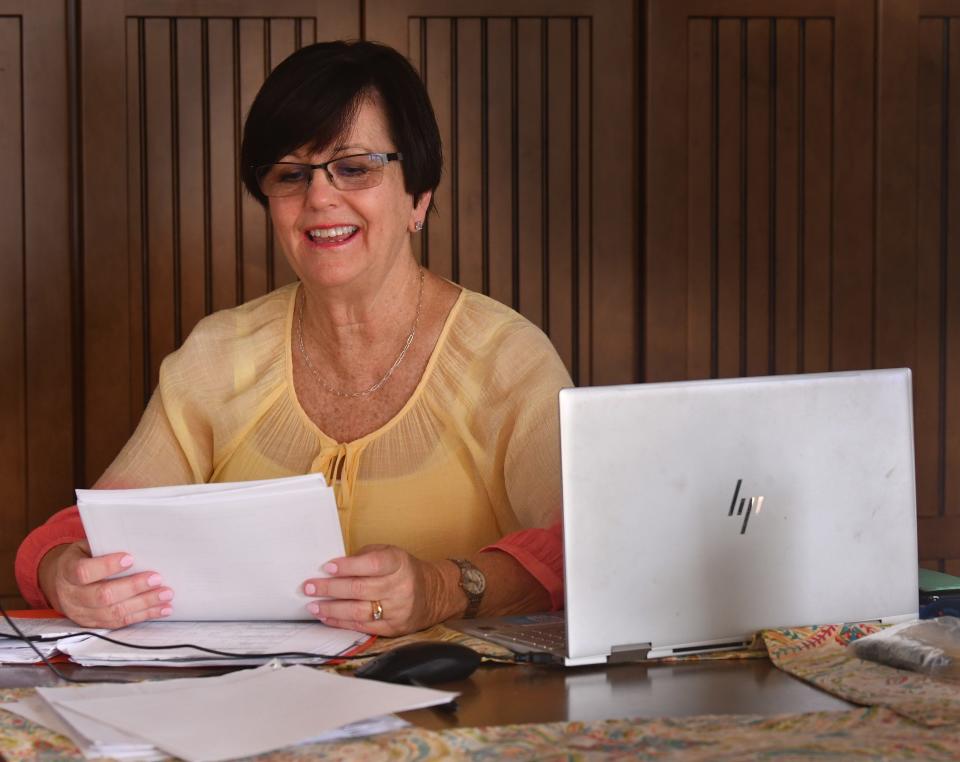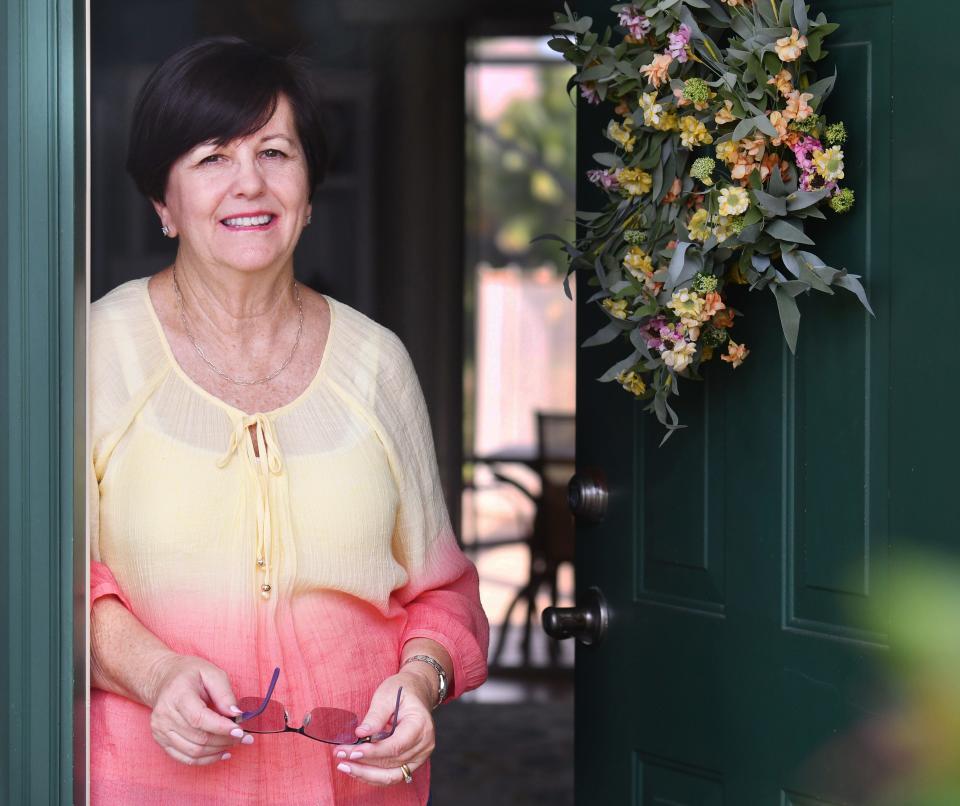'It's like "The Hunger Games"': Retired Brevard teacher recounts time in special education
It isn't just disabled kids and their families who struggle for support in Brevard's schools.
Rhonda McCarthy just finished her final year of working with students in Brevard's Exceptional Student Education program. The teacher of 14 years began her career working as a resource teacher, stepping into classes throughout the day to help students with IEPs, or Individualized Education Program, as needed. In more recent years, she worked as a teacher in a varied exceptionalities classroom, which is where students below grade level with a variety of disabilities are sometimes placed.
Her students were all in third and fourth grade. But most came to her in August at least three grade levels behind. And while her goal was to get them at least one grade higher than where they started, she had to contend with multiple obstacles in the way, like a lack of resources, long days and disruptive behaviors going unaddressed.

Resources: 'It's like "The Hunger Games"'
McCarthy said that over the years, trying to find materials for her classroom could be extremely difficult.
"If I have a student who is three grades below grade level, and I'm getting a third grade curriculum, and they can't even read the third grade curriculum, I'm ... having to go around the school and get books that (have) been thrown out, or that no one's using or scrape together some lower level curriculum and resources to teach my kids with," McCarthy said.
Even that was better than it used to be. It's only been within the past year or so that VE classrooms are given the same curriculum as general education classrooms, McCarthy said. Before, teachers were tasked with pulling together their own materials. Often, they had to resort to using items that were going to be thrown away, or purchase supplies with their own money.
"It's like 'The Hunger Games' trying to find materials for your classroom as a VE classroom teacher," McCarthy said. "ESE students are not given, in my eyes, in my opinion, the same educational opportunities, curriculum, resources, as the gen ed classroom, and that is the bottom line truth."
Russell Bruhn, a former spokesperson for Brevard Public Schools, said BPS provides grade level curriculum for all students in all settings, with each student receiving a textbook or other instructional material based on their grade level.
"When making district level purchases for core instructional material, we order for every student. This has been the case for several years," Bruhn said.
He added that the only exception to this is with VE curriculum for students on Access Points that require modified curriculum. Access Points refer to academic expectations written for students with significant cognitive disabilities.

The lack of resources teachers have faced isn't specific to Brevard. Diana Heldfond, CEO of Parallel Learning, an online provider of psychological assessments and other services for disabled students, said there are disparities in educational opportunities around the nation, especially for students in marginalized communities.
"We’ve found in rural America, students do not have the same access to the types of specialists that they would have access to in more urban, wealthier communities," Heldfond said. "On the other side, overburdened urban school districts also can’t offer students the resources they need, simply because there are too many students for the number of providers."
Heldfond added that teletherapy like what's offered through her company is a way to offer students with services they may not otherwise have access to.
Students with behavioral issues funneled into VE classrooms
In addition to the lack of resources, McCarthy said behavioral issues among students is not only another challenge for teachers, but also a threat to them and other students. Students with the most extreme behaviors are often placed in VE classrooms, she said, adding that she's seen students, punching, spitting, scratching and kicking teachers and other students, as well as throwing chairs and desks.
She feels that little is done to remedy these behaviors.
"These ... students might get suspended for a day or two, but then (they're) placed right back in the classroom," she said. "I have seen them get removed from the classroom to be placed in another classroom with another teacher, and if that doesn't work, many times they end up in a VE ESE classroom."
While meetings do take place to discuss these behaviors, it can add extra work for teachers, McCarthy said. And it can take a long time before anything is actually done to remedy the situation.
"Teachers are expected to track data and try interventions to help the student not have violent outbursts," she said. "However, tracking data can take a whole school year and multiple interventions have been exhausted, (but) students are still not removed."
She spoke of serving on a committee at one point to address these issues, spending two hours every other week to try to solve the problem with new policies.
Nothing ever came of it.
Teaching: worthwhile to see students succeed
Burnout, 13-hour work days, and struggles to get kids the resources they needed: These were all normal parts of McCarthy's job, she said, and all factors that made her work nearly impossible to continue. And yet she stuck with it for 14 years before retiring.
Ultimately, she was there because she loved the kids and wanted to make a difference.
"It ... has been a lot of great moments where a student who couldn't read now does read, the student who had significant behaviors was so down on themself now is starting to feel better about themself," she said. "So that's why I stayed. I mean, that's the love that I had for it."
The memory of one particular student will always stick with her. With incarcerated parents, he was being raised by his grandparents and struggling with disruptive behaviors. McCarthy had lunch with him once or twice a week to get to know him.
"He started making real gains," she said.
He wasn't a very emotional kid, she said, adding that he wasn't very touchy-feely during their time together. But at the end of the year, when he was graduating elementary school, he came to her class at the end of the school day to say goodbye and get a hug.
"He had this look on his face, and he was crying ... he just looked at me, and he said, 'Thank you, Mrs. McCarthy. No one has ever cared before,'" she said. "I go back to that sometimes and I'm like, 'Well, if I did nothing (else), I made a difference for one kid.'"
Finch Walker is the education reporter at FLORIDA TODAY. Contact Walker at fwalker@floridatoday.com. X: @_finchwalker.
This article originally appeared on Florida Today: Special education teachers struggle for resources, support in Brevard

